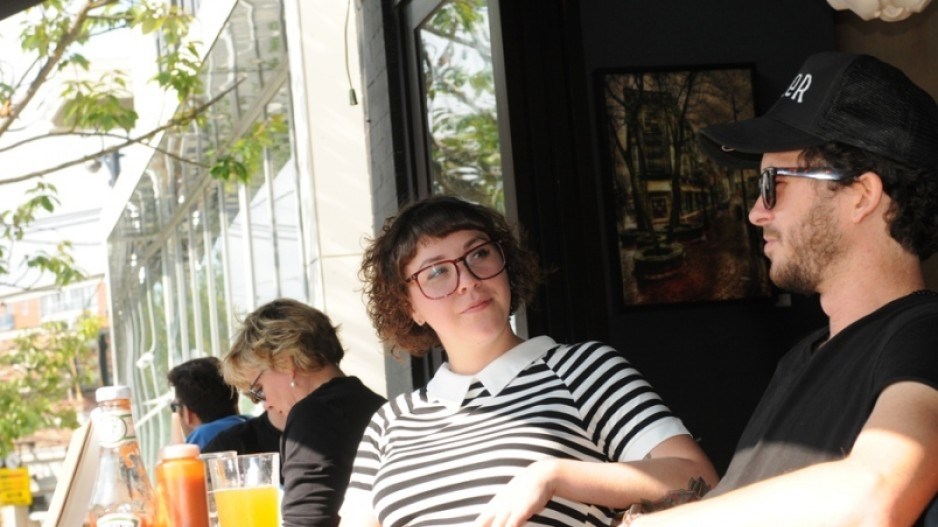A total of 46 operators of Vancouver restaurants, bars and craft breweries have applied to the city for temporary patios since the application process opened Monday.
Jessie Adcock, the city’s general manager of development, buildings and licensing, said Thursday that of the 46 applicants, 14 were granted permits, with others to follow by the end of the week.
“So far, so good,” Adcock said of the interest. “Generally speaking, I feel like people are quite happy that we heard how important this was going to be to the economic recovery.”
The new program, which expires in October, is aimed at helping businesses that either closed or operated in a limited capacity over the last few months and are now trying to recover revenue losses sustained from the pandemic.
The city has waived fees, which can run up to $3,000 annually, and promised a two-day turnaround for applicants. Setting up a patio after getting a permit depends on how elaborate the patio, said Adcock, noting the city has supplied template patio drawings for businesses to use in their online application.
Patios are expected to come in all sizes, with some taking over parking spots and portions of sidewalks. Operators serving liquor on patios will require railings around them, while other patios may consist of tables and chairs that can be moved at the end of the day.
Though some of the city’s craft breweries have applied for a permit, not all fall under the same zoning, so the city continues to work with them to speed up the process, Adcock said.
“The complexity there is some are zoned as manufacturers, and others have gone through a process to be rezoned and get restaurant clearance, which puts them in a different category of allowable uses,” she said.
Adcock said the city is also working to expand the program to permit temporary patios on private property, where a restaurant might want to negotiate with the owner of an adjacent parking lot to place a temporary patio.
Three of the applications received were for private property patios.
“What we’ve been trying to tell applicants is the simpler the application, the faster the approval,” she said. “We’re continuing to work on the stuff that we haven’t completely got solutions for yet, and we’re slowly, slowly building on what we launched on day one.”
Neil Wyles, the executive director of the Mount Pleasant Business Improvement Association, said he expected more business owners would apply for temporary patios. But, he said, he was encouraged and hopeful more businesses would take advantage of the program.
One complaint he heard from an owner was that he submitted a sketch of the patio he wanted, and the city told him he needed architectural drawings — for four tables.
“That’s not nimble, that’s not quick,” Wyles said. “Hopefully, the staff will start to realize that this is not business as usual anymore. But there have been some guys who clearly have had some positive results.”
Wyles said he is working with restaurants and cafes along a strip of Main Street between 14th and 15th Avenues to have patios along the block. That would require either taking parking spots or the sidewalk to accommodate the patios, he said.
He said patios could attract more customers with “cabin fever” from the pandemic.
“Everyone wants to sit on a patio during the summer, so if the city is going to enable us to do that, that’s great,” he said.
Ian Tostenson, president and CEO of the B.C. Restaurant and Food Services Association, described city council’s approval of the patio program as “totally proactive, awesome and needed.”
Margaret Wittgens, the city’s acting deputy general manager of engineering, told council last week the new patios cannot have structures on them or anything electrical. The intent is to enable quick implementation that does not involve significant design, or construction costs, Wittgens said.
“Our real goal is to move fast and be agile,” she said. “That’s going to require learning as we go and working with businesses to adjust if things don’t work.”
Twitter/@Howellings




